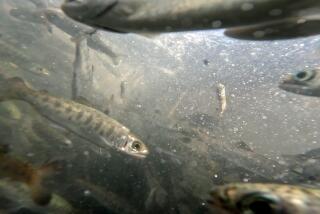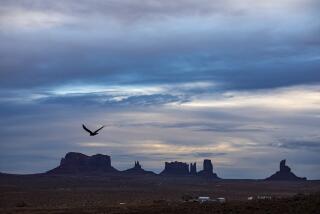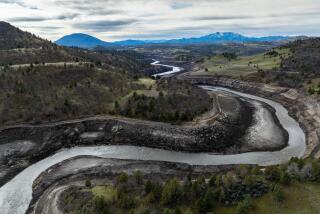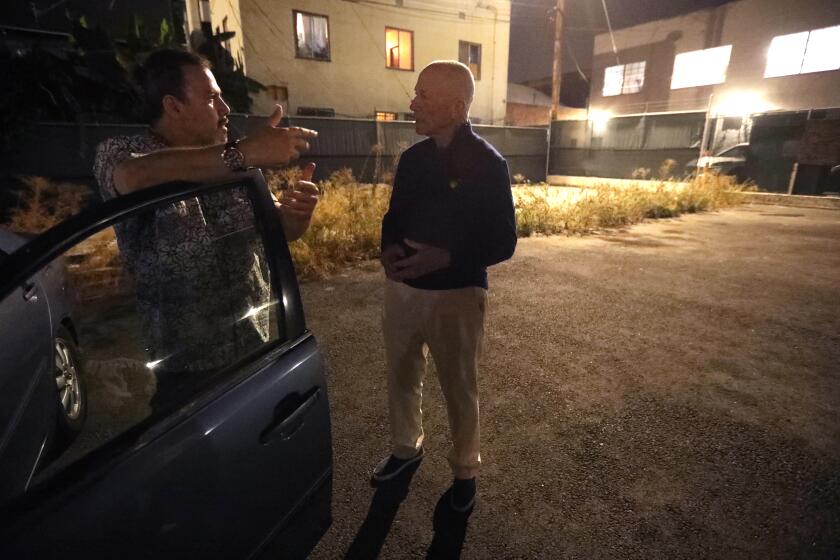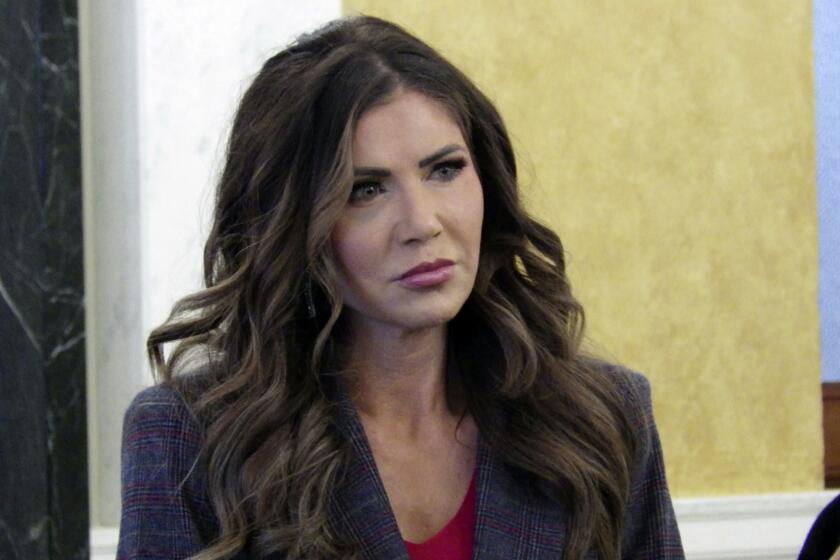Op-Ed: How a stunning Klamath Basin water agreement has been doomed by lawmakers
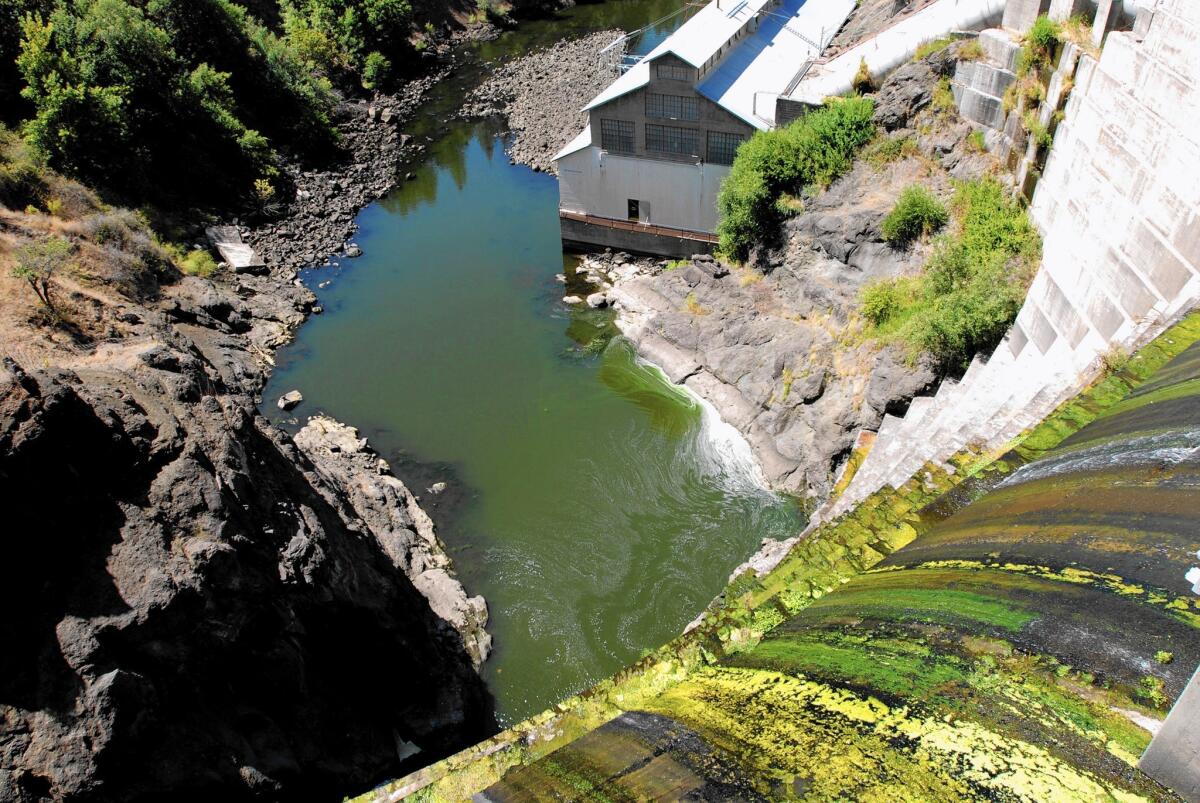
The people of the Klamath Basin did everything right.
After years of acrimonious lawsuits, public denunciations and millions of dollars spent fruitlessly on lobbyists, the warring sides in what had become the nation’s most contentious river basin decided a decade ago to do something unexpected: They negotiated. On one side were farmers (and later ranchers) at the top of the basin, who relied on the Klamath River’s water for their fields and on power generated by four dams to run their irrigation pumps. On the other side, commercial fishermen and the basin’s four Native American tribes deplored the dams and water diversions for decimating the Klamath’s once-abundant salmon, the source of the fishermen’s livelihood and the foundation of the tribes’ culture and diet.
Over the next few years, negotiators met hundreds of times. They put in 80-hour weeks, driving five or six hours to attend meetings, often while struggling to run their far-from-lucrative businesses. It took them a year to build trust. What they learned, they said later, was that the presumed monsters across the negotiating table also cared about their families, the river and the land: They weren’t so different after all.
The negotiations were helped along by basin citizens who acted with extraordinary courage, showing the way. In 2001, when the basin was smoldering with anger and hard-hit by drought, a Klamath Tribes of Oregon leader named Jeff Mitchell braved farmers’ hostility as he knocked on their doors to tell them he commiserated with their water-scarce plight. Becky and Taylor Hyde stepped across the rancher-Native American divide by turning over trusteeship of their land to the tribe that had once occupied it. Steve Kandra, a farmer who sued the federal government for cutting off his water during the drought, withdrew the suit and worked with tribal members toward an agreement, despite the outrage of his fellow farmers. The spirit of compromise ended up jumbling so many allegiances that Greg Addington, the head of the Upper Klamath Basin farmers association, told me, “My friends are my enemies and my enemies are my friends.”
In 2008, when the negotiators announced a stunning agreement, the congressman who represents the Upper Basin, Greg Walden, singled out the negotiators’ thoughtful grass-roots process for praise. After declaring that they “deserve a medal,” he said, “I’ve always felt the best and longest-lasting solution would come from the various parties in the basin working out a plan that made sense for all concerned.”
The three pacts that eventually formed the Klamath Basin restoration agreement were equitable, scientifically grounded documents generated by local citizens. The farmers agreed to consume less water, even though that meant reducing crop acreage, in return for a water-supply minimum guaranteed except during droughts. Three of the Klamath’s four tribal groups agreed to the continued diversion of some water to the farmers even though that could lower chances of salmon restoration. The farmers accepted dam removal in exchange for other kinds of energy. The dams’ owner, a Berkshire Hathaway subsidiary named PacifiCorp, agreed to take down the dams as long as ratepayers and a California bond measure (approved last year) paid for the dismantling and the company was absolved of potential liabilities. Even the Upper Basin ranchers, once hostile to water restrictions and the last major holdouts to the agreement, signed on in 2014. They knew that if they didn’t, they could expect water shut-offs that would doom their fields.
Conservative orthodoxy holds that dam removal is never good ... even when nearly every constituency in the community will benefit.
As it turns out, Walden, a tea party favorite, is now chairman of the National Republican Congressional Committee, which makes him the House’s third-most powerful member. Given Republicans’ views on federal power, you’d think he’d continue to support a bottom-up agreement like this, particularly since the majority of his constituents decided they needed it. But conservative orthodoxy holds that dam removal is never good — apparently even when, as in this case, the dams are antiquated, environmentally disastrous and privately owned, and when nearly every constituency in the community would benefit.
So here is what the basin got for doing everything right. After five years of struggle for congressional approval of the Klamath agreement, the four Democratic senators of California and Oregon introduced authorizing legislation in January. But this month, just ahead of a Dec. 31 deadline dissolving the agreement if it hasn’t gained Congress’ approval by then, Walden unveiled a draft House bill that will almost surely kill the deal. It omits dam removal — the agreement’s centerpiece — and includes an unrelated provision to turn over 200,000 acres of federal timberland to two counties on the California-Oregon border. Given the new provision’s controversial content and the timing of the House bill, Walden must have known it had no chance of passage. In essence, his move consigned the Klamath’s “best and longest-lasting solution” to Washington’s black hole.
The dams may eventually come down without congressional authorization, and some Klamath leaders say they’ll try to devise other ways to preserve portions of the agreement. But the chronically poor basin will still suffer a grievous blow. River restoration funds won’t be spent in the region, the river will continue to fester with toxic algae blooms and the salmon population will continue to suffer. And if drought conditions persist, as seems plausible, the Klamath Tribes of Oregon will reluctantly assert their senior water rights, turning off the ranchers’ water.
Jacques Leslie is a former Los Angeles Times foreign correspondent and the author of “Deep Water: The Epic Struggle Over Dams, Displaced People, and the Environment,” which won the J. Anthony Lukas Work-in-Progress Award.
Follow the Opinion section on Twitter @latimesopinion and Facebook
More to Read
A cure for the common opinion
Get thought-provoking perspectives with our weekly newsletter.
You may occasionally receive promotional content from the Los Angeles Times.
